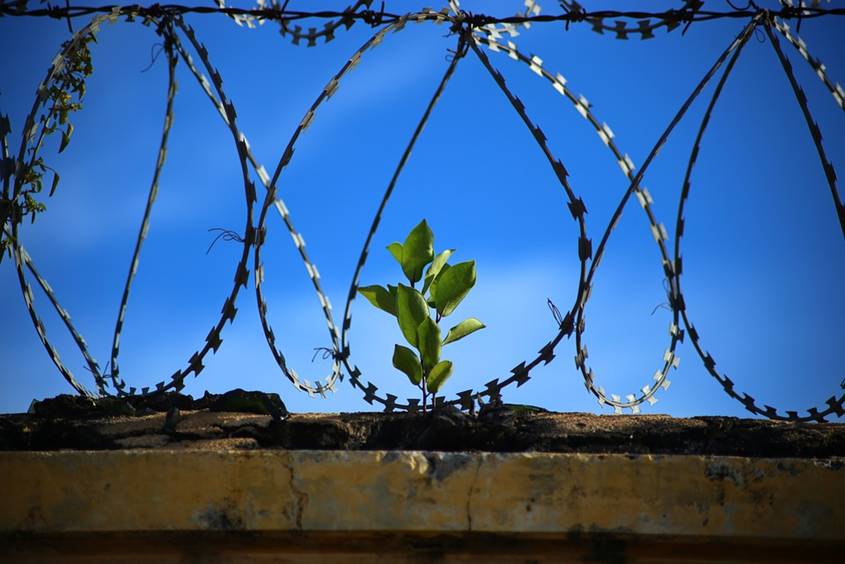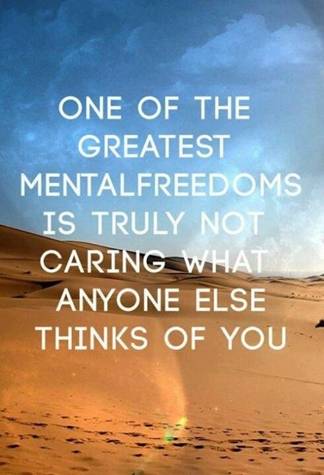
I do not know about you, but once, whenever I thought about freedom, I thought of a prison. I imagined someone trapped in a closed place against his will. It was always a physical place, with bars and darkness, and just thinking of it upset me.
When I started studying how the brain works, my perception changed. I learned that there is another prison – a very secure place that is the hardest to escape. Most of us live in the prison of our own mind, in which we are limited by our way of thinking.
The secret of happiness is freedom. The secret of freedom is courage
Thucydides
I remember the time that I experienced the loss of my child. I could feel how quickly I was building my own prison and how each thought was adding one more bar and one more lock around me. The hardest realization was that only I could set myself free.
No one in their normal mind wants to be trapped inside their mind. Yet, in some way or another, we all are. This is because we are not in our normal mind. Yes, me too. Do not take this too hard, but Buddhists think we are all delusional, trapped in the prison of our own ego.
Think about it: imprisonment is the absence of freedom. We only desire freedom when we feel that we do not have it. If you feel free, why would you search for freedom? This comparison between what we have and what we lack, followed by the bad feeling we have about it, is a prison in itself.
The hardest prison to escape is in your mind
Think of a prison as a place that confines your thoughts, movements, and your sense of freedom. Something is holding you back from that free feeling to express, do, feel, have, think or be.
If the person who put us in prison does this to punish us for not following the rules, we can analyze it easily and usually blame them. If the one who put us in prison and limits our freedom is us, who can we blame?
So we feel very confused. This is usually because we have not followed some of our own unwritten rules and we do not have a way out. In this situation, we are the judge, we are the prison guard, and we are the prisoner. We are also the prison walls, because they are all in our head. Again, we are the only ones who can set ourselves free.
Freedom is not worth having if it does not include the freedom to make mistakes
Mahatma Gandhi
Most of us think that our way of thinking is set in stone, and that it defines us. We do not recognize how some of our thoughts (the negative thoughts, anger, judgment, sadness, criticism, resentment, blame, guilt or fear) limit our sense of freedom that happy thoughts give us. In his book, Man’s Search for Meaning, Victor Frankl wrote that even in a concentration camp, when he was physically contained, he had freedoms no one could take from him. He had the freedom to hope, think and believe. At any moment in time, no matter what happens to us, we have freedoms we can execute and no one will be able to take them away from us.
Other people can control your body and limit its movement, they can control who can see you. They can control your sleep, your food and your movement, but no one can control what you think.
A negative, narrow, and critical mind is our way of imprisoning ourselves. In order to be free, we need to use the freedom to think and to change our thinking.
Sounds hard, right?
It is not!
How to free your mind
We can use one way of thinking to change another way of thinking. Here is a 3-step process that will take you out of your own mind’s prison.
Step 1: Recognize your feelings
First, you must recognize what feelings enclose your space and imprison you. This is very simple to do: if you feel uncomfortable in any way, then that feeling is a wall around you. Anger, resentment, judgment, criticism, contempt, doubt, pain, depression, disappointment, blame, regret, worry, gossip, low self-esteem, fear, jealousy and anxiety are just versions of prison feelings.
Give them a name!
Step 2: Discover your attachments
Find out what thoughts generate or trigger your feelings. A simple way to do this is to complete the sentence, “I feel worried/sad/angry/jealous because…” and then notice the reason you give yourself for having that feeling.
Every feeling is generated by a thought. Think of those thoughts as the bars of your prison. The more explanations you have for the negative feeling, the more limited you are and the longer your prison sentence will be.
For example: “I feel disappointed because I did something for my partner from the bottom of my heart and he didn’t respond the way I wanted him to”. The thought that brings me misery is not the fact he did not do what I wanted him to do, but the expectation that when I do something from the bottom of my heart, he will reciprocate.
Buddhism considers this an attachment. I am attached to my own limited concept of fairness, which dictates that when I am kind to someone, they immediately have to be kind to me in the same way.
He who is brave is free
Seneca
Step 3: Take responsibility
Swap the negative thoughts with kind, forgiving, accepting, respecting, compassionate, generous, patient, caring and loving thoughts. You will see immediately how the bad feeling dissolves and then you feel freer and lighter.

In the example above, I can change my limited definition of fairness to, “I am glad he gave me an opportunity to be kind to him”, or, “If he could reciprocate, he would have. I should keep being nice to him”.
I have many beliefs that set me free every time I feel upset, angry or disappointed. It is a long life journey and it is better to consider any negative experience as an opportunity to develop your thoughts of freedom. For many years, I have been on a journey to find those freedom thoughts and, let me tell you, seek and you shall find! I always find them.
Is it possible to use them 100% of the time? I know I can’t, but even so, I try to make sure my prison sentence is short by being kind to myself and by aiming to use them more and more.
I know but one freedom and that is the freedom of the mind
Antoine De Saint-Exupery
Positive beliefs to set yourself free
Here is a list of ten beliefs I have adopted. You can adopt the ones that you find most appealing. Try to use them every time you feel uncomfortable:
- “If I am unhappy about something, I need to check my expectations. The source of my suffering is my unmet expectations. I let go of my attachments”
- “People do the best they can. If they could do better, they would have done. I accept others the way they are”
- “I am the host of my own thoughts. When I host negative thoughts, I am in a prison. When I host positive thoughts, I am free”

- “No one is perfect. Expecting perfection from myself or from others only brings suffering”
- “It is OK to fail. Failure is a learning opportunity. If I fall seven times, I will get up eight and I will never, never give up”
- “No one can make me feel anything without my consent”
- “It is possible for 2 people to look at the same thing and think about it different thoughts”
- “Regrets come from the illusion that I could have done something different. If I could act differently, I would have done”
- “Everything will look better tomorrow, after a good night’s sleep”
The idea is to use the thoughts as buttons that, when triggered, take us either into prison or towards freedom. Once you recognize that you have a negative thought, exchange it with a positive thought and get yourself to freedom. Over time, you will make your thought swapping better and faster and be totally free.
Freedom is a feeling, much like love, hate, fear and or kindness, and we can choose it. We can choose to be free!
Have a great life,
Ronit













